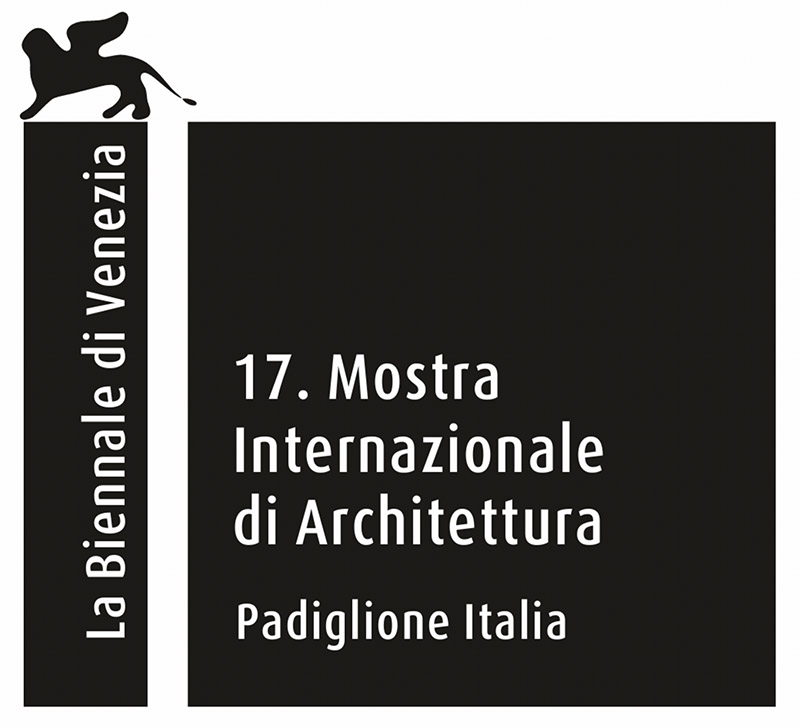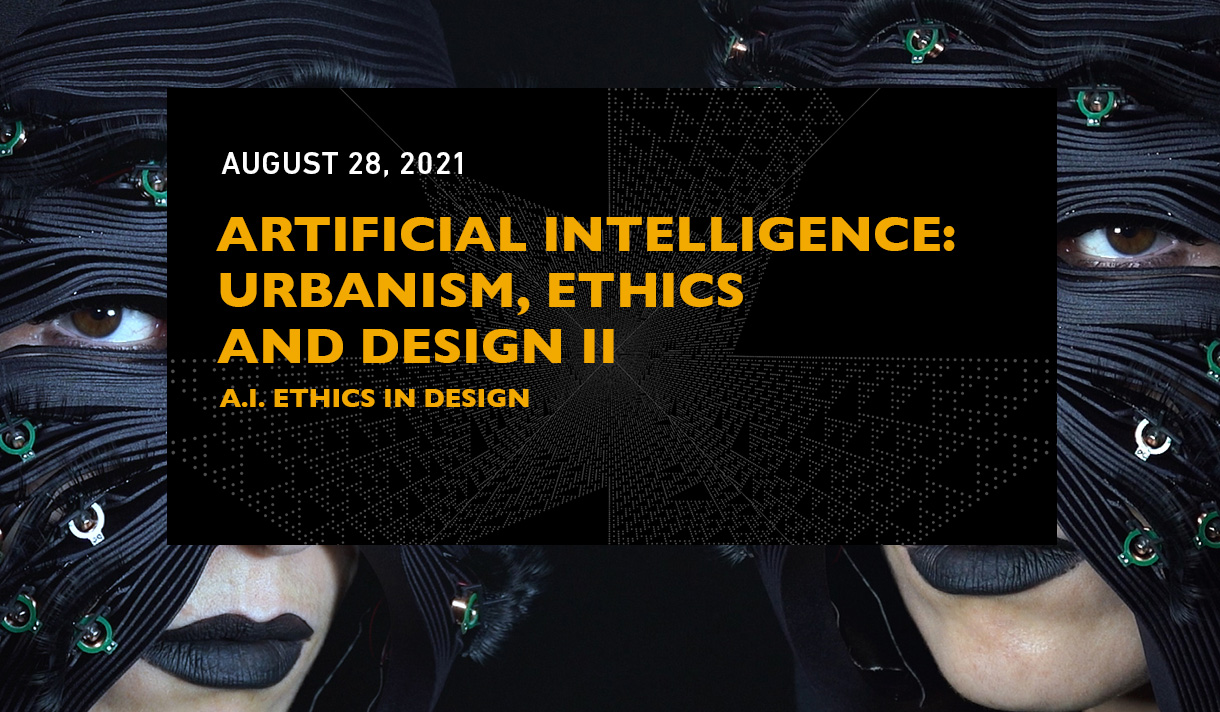Event
Artificial Intelligence: Urbanism, Ethics, and Design II AI Ethics in Design
August 28, 2021
10:00 AM – 12:00 PM
A collaboration of the School of Architecture and Design, New York Institute of Technology, and DigitalFUTURES/Tongji University, Shanghai
Artificial Intelligence as a disruptive technology is shifting paradigms at many levels through automation, revealing deep cultural problems in our society by means of how neural networks are being trained and repositories tagged through problematic categories. While we are at an earlier age in automation and we expect these issues to be less problematic, cultural issues are as structural as the technology implemented. At the same time, a “Digital Feudalism” in which secure cryptography is only feasible at these concentrated levels of power since hacker AI boots fight AI security boots at increasing speed, and in which any users' small error would be enough to validate this feudal protection accentuating the power control now in hands of very few companies. Both issues, cultural deconstruction through computational power and increasing political and economic power concentration, are defining how the technology is being applied, presenting ethical issues that reveal our society’s challenges.
Welcome
Maria R. Perbellini, Dean, School of Architecture and Design, New York Institute of Technology
Introductions & Moderation
- Pablo Lorenzo-Eiroa, Director, M.S. in Architecture, Computational Technologies, School of Architecture and Design, New York Institute of Technology
- Tom Verebes, Professor, School of Architecture and Design, New York Institute of Technology
Panelists

Mark Coeckelbergh, Ph.D.
Vice Dean and Professor, University of Vienna
Bio
Mark Coeckelbergh is a full professor of Philosophy of Media and Technology at the Department of Philosophy of the University of Vienna. His expertise focuses on ethics and technology, in particular robotics and artificial intelligence. He is currently a member of various entities that support policy building in the area of robotics and artificial intelligence, such as the High Level Expert Group on Artificial Intelligence, which advises the European Commission, and the Austrian Robotics Council (Rat für Robotik, established by the Austrian Government to support policy building in the area of robotics), the Austrian Advisory Council on Automated Mobility, the Foundation for Responsible Robotics, and the IEEE Global Initiative for Ethical Considerations in Artificial Intelligence and Autonomous Systems. He is also former president of the Society for Philosophy and Technology (SPT) and author of 14 philosophy books, and has been involved in interdisciplinary collaborations in the context of the European research projects PERSEO, INBOTS, DREAM (robot-enhanced therapy) and SATORI (ethical impact assessment of research and innovation). Recent publications include:
- Coeckelbergh, M. 2021. Green Leviathan or The Poetics of Political Liberty: Navigating Freedom in the Age of Climate Change and Artificial Intelligence. New York: Routledge.
- Coeckelbergh, M. 2020. AI Ethics. Cambridge, MA: MIT Press.
- Coeckelbergh, M. 2021. `Defamiliarizing Technology, Habituation, and the Need for a Structuralist Approach,’ in Foundations of Science. Online first 2 June 2021.
Offering an overview of ethical issues raised by the use of AI in architecture, this lecture will focus on the ethics of automation in the context of human-technology relations.

Behnaz Farahi
Assistant Professor, School of Cinematic Arts, University of Southern California; Director, Behnaz Farahi Architecture, Fashion, Interactive Design
Bio
Trained as an architect, Behnaz Farahi is an award-winning designer and critical maker based in Los Angeles. She holds a Ph.D. in Interdisciplinary Media Arts and Practice from USC School of Cinematic Arts. Currently, she is an Assistant Professor in the Department of Design, California State University, Long Beach.
Farahi explores how to foster an empathetic relationship between the human body and the space around it using computational systems. Her work addresses critical issues such as feminism, emotion, perception, and social interaction. She is co-editor of an issue of AD, “3D Printed Body Architecture” (2017) and “Interactive Futures” (forthcoming).
What does it mean to live in our digital culture, where our bodies are enmeshed in the materiality of machine algorithms, sensors, and digital processes? How could AI systems undermine the underlying injustice biases and serve to empower those who face injustice?
This presentation addresses the notion of the “gaze” and “surveillance” in our contemporary digital culture from social and political perspectives. Through the implementation of computer vision, biometric sensor technologies, and machine learning algorithms, this presentation examines how different strategies of the “gaze” can be seen to undermine various forms of power structure and to promote forms of resistance. It also explores how literal masks might hide or reveal new identities, and offer strategies to the marginalized groups to develop their own secret language.
This presentation avoids technological determinism. Rather than rehashing arguments as to whether surveillance is good or bad, it takes an intersectional critical feminist approach to illustrate what constitutes the gaze and surveillance and what might prove to be effective strategies of resistance in creative practices.

Safiya Umoja Noble
Associate Professor, Department of African American Studies and Department of Information Studies, UCLA
Bio
Safiya U. Noble is an Associate Professor of Gender Studies and African American Studies at UCLA, where she serves as co-founder and director of the UCLA Center for Critical Internet Inquiry (C2i2). She holds affiliations in the School of Education & Information Studies and is a research associate at the Oxford Internet Institute at the University of Oxford, where she is a commissioner on the Oxford Commission on AI & Good Governance (OxCAIGG). Noble is a board member of the Cyber Civil Rights Initiative, serving those vulnerable to online harassment. She is the author of a best-selling book on racist and sexist algorithmic bias in commercial search engines, entitled Algorithms of Oppression: How Search Engines Reinforce Racism (NYU Press), which has been widely reviewed in scholarly and popular publications.
Noble is the recipient of a Hellman Fellowship and the UCLA Early Career Award. Her academic research focuses on the design of digital media platforms on the internet and their impact on society. Her work is both sociological and interdisciplinary, marking the ways that digital media impacts and intersects with issues of race, gender, culture, and technology. She is regularly quoted for her expertise on issues of algorithmic discrimination and technology bias by national and international press including The Guardian, the BBC, CNN International, USA Today, Wired, Time, Full Frontal with Samantha Bee, The New York Times, and a host of local news and podcasts. Her popular writings include critiques on the loss of public goods to big tech companies, as featured in Noema magazine.
Safiya is the co-editor of two edited volumes: The Intersectional Internet: Race, Sex, Culture and Class Online and Emotions, Technology & Design. She currently serves as an associate editor for the Journal of Critical Library and Information Studies, and is the co-editor of the Commentary & Criticism section of the Journal of Feminist Media Studies. She is a member of several academic journal and advisory boards, and holds a Ph.D. and M.S. in Library & Information Science from the University of Illinois at Urbana-Champaign, and a B.A. in Sociology from California State University, Fresno where she was recently awarded the Distinguished Alumni Award for 2018. Recently, she was named in the “Top 25 Doers, Dreamers, and Drivers of 2019” by Government Technology magazine.
In 2020, she was awarded the Distinguished Alumna Award from the iSchool Alumni Association (ISAA) and is also the inaugural Diversity and Inclusion Award winner from the Illinois Alumni Association at the University of Illinois at Urbana-Champaign.
Despite the promises of AI, systems design is fraught with architectures of race and racism, gender, and sexuality that can foreclose opportunity to many publics. In this brief talk, Noble discusses algorithmic oppression, a practice that is increasingly difficult to intervene upon in AI systems, and possibilities for repair and restoration.
NOTE: You must register to receive the pertinent Zoom information.

New York Institute of Technology, School of Architecture and Design at the 17th International Architecture Biennale 2021, and the Virtual Italian Pavilion
Questions? Contact the School of Architecture & Design at archevents@nyit.edu
